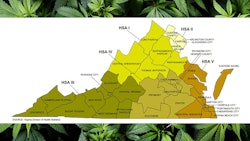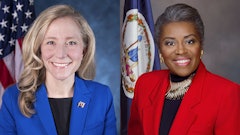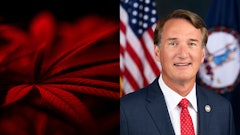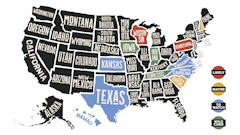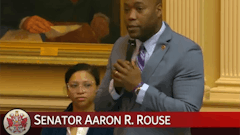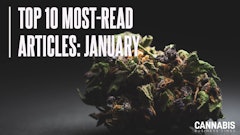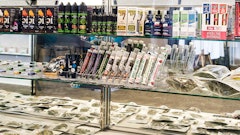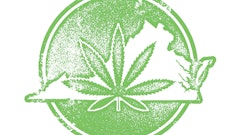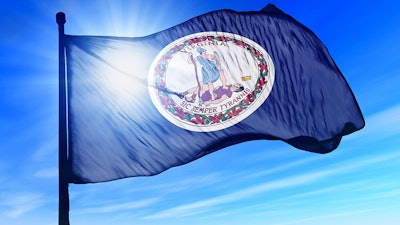
A study evaluating Virginia’s medical cannabis program has revealed that 90% of the state’s patients are purchasing cannabis outside of the state’s regulated market.
The extensive 77-page study, mandated by legislation passed by the General Assembly, found that the medical cannabis program “is struggling to capture patients amid evolving local policies as well as adult-use policies in bordering states, resulting in prices remaining high.”
Roughly 57% of patients grow their own cannabis at home, according to the study, while about 65% have received cannabis from a friend or family member, “suggesting that recent home-grow and adult-use sharing legislation has negatively impacted the ability of Pharmaceutical Processors to obtain and retain demand.”
The study revealed that 12% of patients travel to other jurisdictions, including Washington, D.C., and Maryland, to purchase cannabis at lower costs.
The average price per gram for cannabis flower is $14 in Virginia, according to the study, while it is $8.73 in D.C. and $9.72 in Maryland.
Roughly 0.5% of the total state population is enrolled in Virginia’s medical cannabis program, the study found, and of past-year consumers who are not registered patients, 22% said they do not need to enroll in the program because they can access cannabis elsewhere.
This is all bad news for Virginia’s medical cannabis operators; the study found that “Virginia’s restrictive policy framework, including limited licensing and the Health Service Area (HSA) segmentation, coupled with the widespread availability of cannabis from out-of-state markets, home cultivation, and illicit channels, has created an environment in which Pharmaceutical Processors are operating at their profit-maximizing supply quantity. In other words, licensees may have no expectation of increased profits if they expand their supply and lower prices because substitute markets have recently taken root.”
Further, the study revealed that “the high prices of medical cannabis found in Virginia are likely necessary for Pharmaceutical Processors to remain solvent given the current market and policy conditions and are unlikely to indicate an effort to intentionally overcharge medical patients.”
Therefore, patients will likely continue accessing cannabis from outside Virginia’s medical cannabis program, according to the study, leaving medical cannabis operators unable to capture the full potential of the market’s demand.
There are currently four medical cannabis licenses owned by three vertically integrated operators in Virginia’s medical cannabis market. Each one can operate up to six dispensaries.
A fifth license has been disputed since the Virginia Board of Pharmacy rescinded a conditional license in HSA I three years ago.
The state-mandated study was meant to determine if it was necessary or feasible to add new licensees to the existing program. The study outlined the following five policy pathways for the Virginia General Assembly to consider in order to improve patient access:
- Pathway 1: Make no policy changes to the medical cannabis program and issue the remaining Pharmaceutical Processor license in HSA I.
- Pathway 2: Add limited standalone medical cultivation, manufacturing, and dispensary licenses that can operate within any HSA, and allow Pharmaceutical Processors to expand beyond their six-store maximum within their HSA.
- Pathway 3: Issue additional Pharmaceutical Processor licenses in each HSA and maintain the HSA framework.
- Pathway 4: Issue additional Pharmaceutical Processor licenses, eliminate the HSA framework, and allow Pharmaceutical Processors to expand beyond their six-store maximum across the state.
- Pathway 5: Add limited standalone medical cultivation, manufacturing, and dispensary licenses, adopt permissive vertical integration for new and existing operators, allow Pharmaceutical Processors to expand in specialized supply chain functions, and remove the HSA framework.
Meanwhile, lawmakers have grappled with establishing a commercial adult-use market in Virginia.
Former Gov. Ralph Northam signed an adult-use cannabis legalization bill into law in April 2021 that allows adults 21 and older to possess up to an ounce of cannabis and grow up to four plants at home. The legislation set a 2024 target date to launch commercial adult-use sales, but the bill included a reenactment clause that required the General Assembly to reauthorize certain provisions and establish a regulatory framework for a commercial market.
RELATED: New Governor, Reenactment Clause Could Mean Changes to Virginia’s Adult-Use Cannabis Law
Legislative efforts to create such a framework have repeatedly stalled after Republicans took control of the House of Delegates and Republican Gov. Glenn Youngkin took office.










